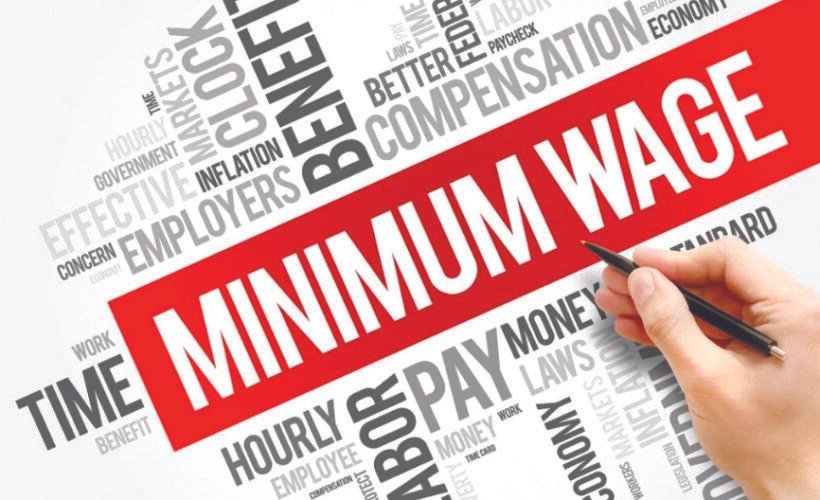
Empowering workers and ensuring equity, Chief Minister Dr Pramod Sawant resolves for a just economic horizon in Goa, advocating for economic justice and fair wages in the state’s industrial landscape
In a significant move towards ensuring fair compensation for workers in the State, Chief Minister Dr Pramod Sawant, has emphasised the effectiveness of minimum wages in Goa. “The government will ensure that the notified minimum wages are paid by the industries to their workers. Those who are not paying will be made to pay,” Dr Sawant said. According to him, the government is steadfast in its commitment to enforcing the payment of the notified minimum wages by industries to their workers. This stern warning comes after the Labour Department’s notification last August, which outlined the revised minimum wages for various schedules of employment in the State. As of the notification, the revised minimum wages stand at Rs. 307 per day for unskilled workers, Rs. 468 per day for semi-skilled workers, Rs. 523 per day for skilled workers, and Rs. 565 per day for highly skilled/supervisory workers. Additionally, the Variable Dearness Allowance (VDA) has seen an increase of Rs. 105. It is crucial to note the substantial disparity between the previous minimum wages, set as of May 24, 2016, and the current revised rates.
Additionally, Anirudh Dempo, President of Goa State Industries Association (GSIA), clarifies GSIA’s stance on compliance with the Chief Minister’s directive, stating that the minimum wage act is applicable to all establishments, emphasising the act’s role as an insurance against employee exploitation. When asked, in fostering a just economic environment, what role should industry associations like GSIA play, and how can they contribute to workers’ welfare and economic justice in Goa; he said, “The Minimum Wage Act is a central law and it defines the process for fixing minimum wage and not living wage (desired wage). The Act is insurance for employees against exploitation by employers, to ensure that basic subsistence is paid to them. The Minimum Wage Act is not envisaged as a legislation to meet the aspirations of employees. This fixing of minimum wage is supposed to be done through a scientific exercise of estimating cost of living which was never done here in Goa in the build up to the latest notification.

“The government will ensure that the notified minimum wages are paid by the industries to their workers. Those who are not paying will be made to pay”
DR PRAMOD SAWANT
Chief Minister
Economic Justice: It is human nature to desire to do economically better tomorrow, than they are doing today. But this applies to both employers and employees. By unilaterally increasing minimum wage to a level much higher than neighbouring states, the Labour Department has ensured that many local industries are rendered unviable, thus denying them their right to do business. For a just economic environment, we would require the Central Government to increase the National Floor Minimum Wage, which would be applicable to all states, thus creating a fair marketplace.
Role of Industry Associations: “Associations never have or will condone breaking the law, but deciding a fair compensation between an employer and employee is entirely out of our domain. We should not overstep our mandate. However, I do strongly believe that there is scope for associations to create awareness among member’s employees to ensure their better health and wealth as savings for them. Some priority areas would be preventive healthcare, mental health, financial literacy, safety at workplace etc,” adds Anirudh Dempo. Further, considering the demand by trade unions for a fixed rate of Rs. 750 per day for unskilled workers, Anirudh elaborates on the role businesses should play in ensuring fair compensation for the workforce. “This demand was made during the advisory board meetings which were replied to in detail in our official submission. In any negotiation, a labour representative will make a maximalist demand to improve the outcome in their favour. But simply making a demand does not make it reasonable or justified. There was no cost of living study done, or basis provided to substantiate this claim. In any case, the unions represent only a small section of the total workforce, and their demands should not be projected on employment agreements in the micro and unorganised sector, whose ability to pay is much lower than large industries where these unions typically operate.”
Despite these efforts, trade unions have expressed dissatisfaction with the revised minimum wages, advocating for a fixed rate of Rs. 750 per day for unskilled workers. Their demand also includes linking wages to a scientific Dearness Allowance (DA) formula, asserting that such measures are essential for ensuring fair and just compensation. The delay in the revision of minimum wages, attributed to the challenges posed by the Covid-19 pandemic, has added urgency to the need for these adjustments. The minimum wages, initially slated for revision every five years, were last updated in 2016. The Variation in Dearness Allowance (VDA) saw a revision of `92 across all categories on October 1, 2022.
Dr Sawant’s commitment to enforcing the revised minimum wages signals a proactive stance towards addressing economic disparities and ensuring the well-being of the workforce. As Goa takes bold steps to realign its minimum wages with current economic realities, the importance of fair compensation for workers cannot be overstated. It is a significant move towards fostering a balanced and inclusive economy in Goa.





